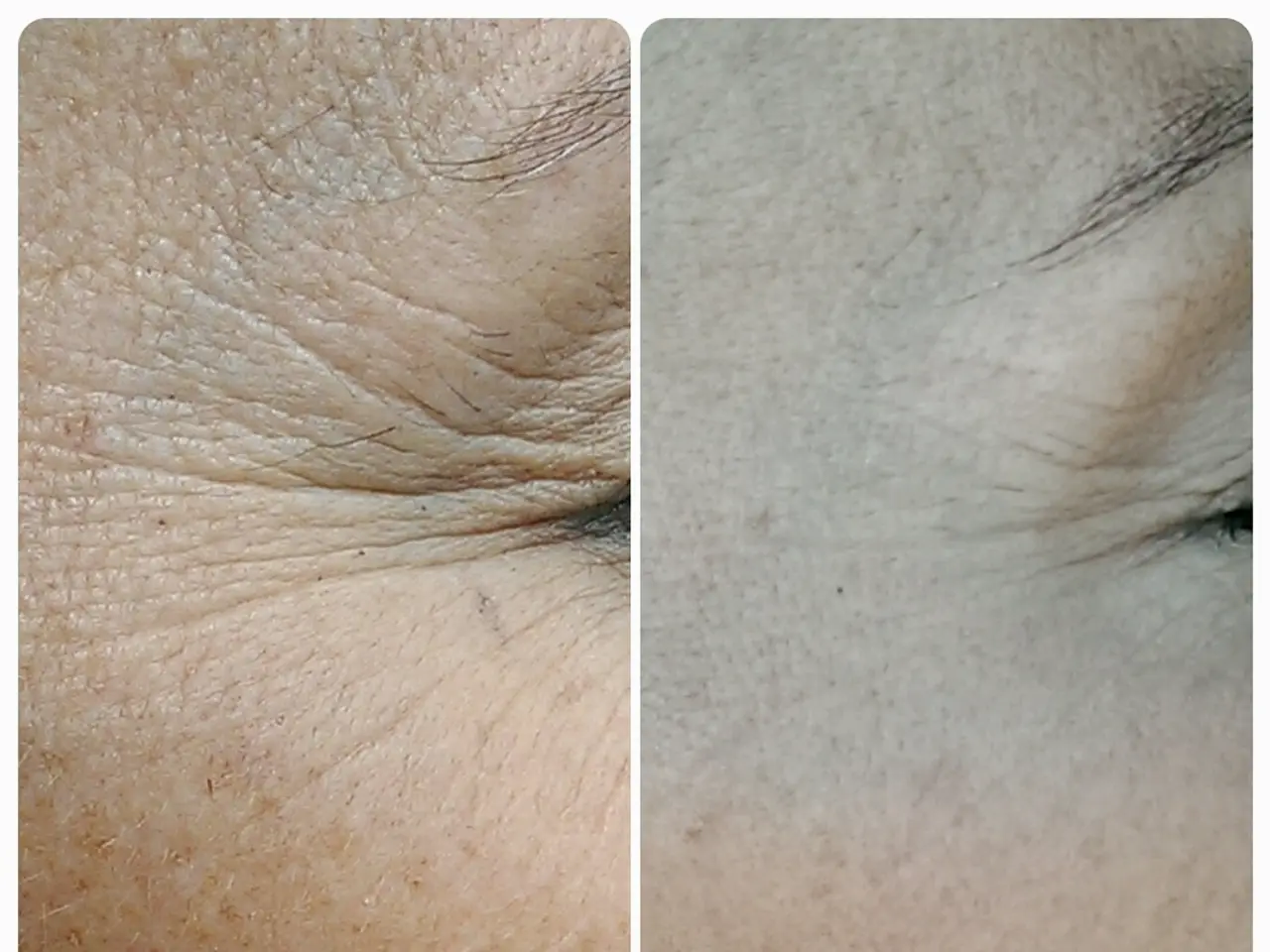Scientists Discover Young Blood Promotes Skin Regeneration
In a groundbreaking discovery, scientists have identified a group of proteins that could revolutionise the anti-aging cosmetics industry. These proteins, found in young blood, are primarily responsible for promoting skin rejuvenation through bone marrow-mediated mechanisms.
Recent studies in 2025 have demonstrated that young human serum itself does not directly rejuvenate skin cells. Instead, it stimulates bone marrow cells to produce a set of approximately 55 age-associated proteins [1][2][4][5]. Seven key proteins have been identified, including CHI3L1, CD55, and MMP-9, which have shown to enhance skin cell renewal, collagen production, mitochondrial function, and reduce cellular aging markers.
The rejuvenating effects depend on inter-organ communication between bone marrow and skin cells, not just local skin exposure. Bone marrow cells act as critical messengers, translating signals from young blood into the secretion of rejuvenating proteins affecting skin aging [1][2].
This research, led by scientists at Beiersdorf AG using sophisticated 3D organ-on-a-chip models combining skin and bone marrow tissue, marks a shift beyond older parabiosis studies in animals to human-relevant systems [3][5]. The young serum triggers bone marrow-derived proteins that reduce the biological age of skin tissue as measured by DNA methylation and other markers associated with skin health [5].
The identification of these specific proteins presents novel targets for future topical or systemic therapeutics designed to mimic the effects of youth-associated blood factors without needing blood transfusions or invasive procedures [4]. This research sets a foundation for next-generation regenerative skincare products that could activate or supplement bone marrow-skin signaling pathways, potentially leading to clinically effective anti-aging treatments.
While promising, these findings remain preclinical and require further validation in human clinical trials, safety assessments, and development of delivery mechanisms before commercial application [2][4]. The use of these proteins could be directed towards deep cellular-level skin function restoration, not just visual improvement of appearance.
The anti-aging cosmetics industry is expected to continue growing significantly in the coming years, reaching substantial market value, according to analysts. The discovered proteins could serve as the foundation for creating new generations of skincare products, potentially setting new standards in the industry. Future developments based on this research could capture a significant share of the market.
In summary, young blood rejuvenates skin through bone marrow-mediated proteins that orchestrate cellular renewal and repair, offering a scientifically validated path towards innovative anti-aging cosmetic and therapeutic products. This represents a significant advance in aging biology and regenerative medicine with substantial potential impact on skincare [1][2][3][4][5]. The range of professional procedures could expand due to these developments, offering consumers a plethora of options for maintaining youthful skin.
Health-and-wellness products, specifically those focused on skin care and anti-aging, may soon incorporate these identified proteins from young blood to stimulate skin rejuvenation. These proteins, such as CHI3L1, CD55, and MMP-9, have shown to enhance skin cell renewal and reduce cellular aging markers, contributing to a younger appearance and better skin health.




